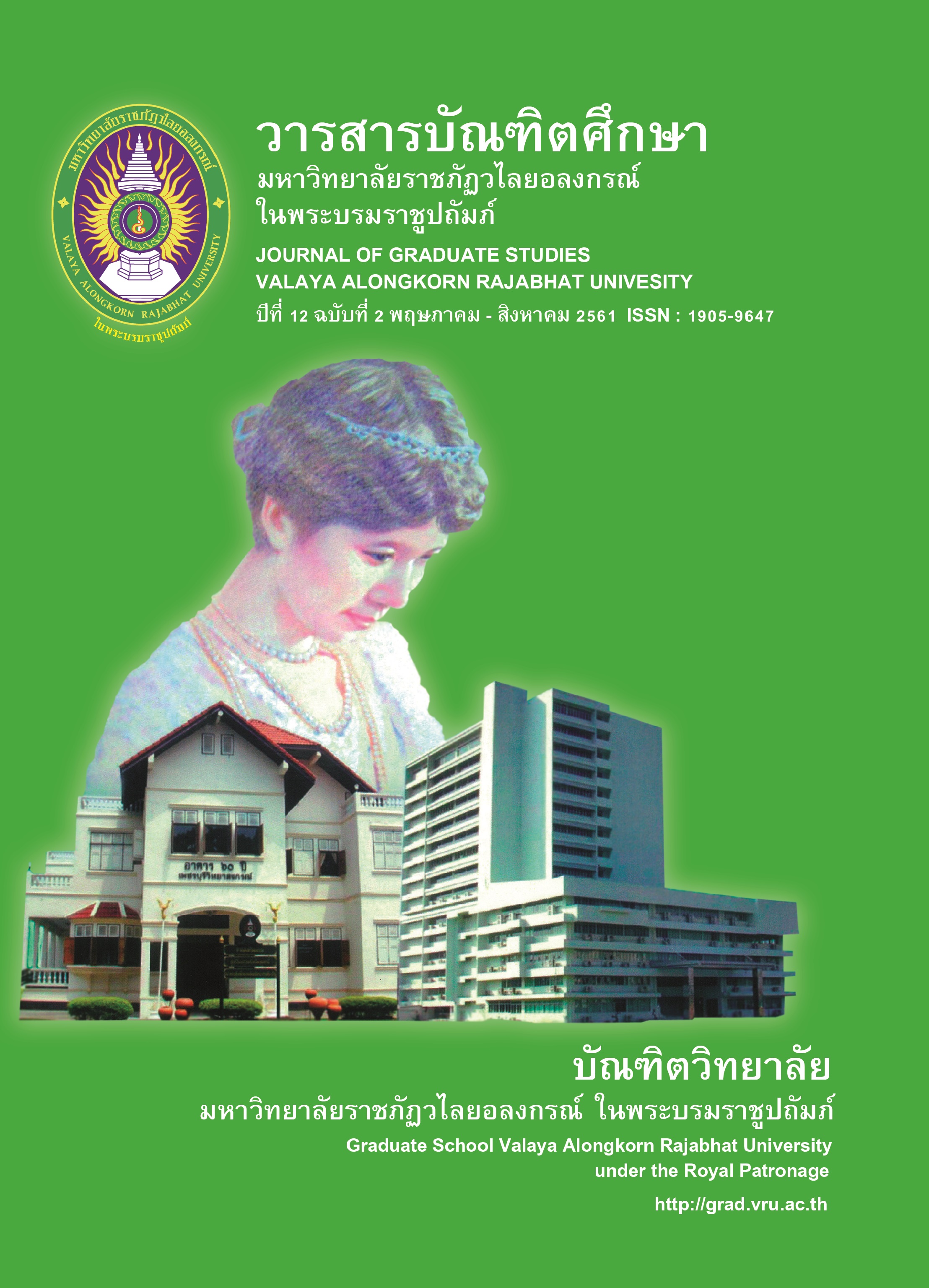DEVELOPMENT OF HUMAN CAPITAL BY PRINCIPLES OF GOOD GOVERNANCE TOWARD THE PRIVATE SCHOOL EFFECTIVENESS IN THE NORTHEASTERN
Main Article Content
Abstract
This research aimed to study the status, to explore the characteristics, to correlation analysis and to study the development of Human capital by principles of Good Governance toward the private school Effectiveness in the northeastern. Mixed
Method were used to study consisting of three steps. Firstly, study of data provider status 262 schools. 2 peoples per school. There were three parts of questionnaires with the IOC between 0.80-1.00 and the reliability was 0.987 and the statistics were used by percentage, mean and standard deviation. Secondly, analyze the relationship by Pearson’s Product Moment Correlation. Thirdly, the ways to study the development of Human capital by principles of Good Governance toward the private school Effectiveness in the northeastern by interviewing 9 experts and the statistics were used by Content analysis.
The results of study are the overview that is high level. By the highest average is Good governance. The secondary is the Effectiveness of schools and development of Human capital. The education of correlation level between development of Human capital, Good Governance, and Effectiveness of schools found that the positive correlation were in the same direction at statistically significant (p<.01) for the ways of development of Human capital by principles of Good Governance toward the private school Effectiveness in the northeastern. The expert’s opinion consist 1) personnel development 2) professional development and 3) organization development.
Article Details

This work is licensed under a Creative Commons Attribution-NonCommercial-NoDerivatives 4.0 International License.
บทความทุกเรื่องได้รับการตรวจความถูกต้องทางวิชาการโดยผู้ทรงคุณวุฒิ ทรรศนะและข้อคิดเห็นในบทความ Journal of Global of Perspectives in Humanities and Social Sciences (J-GPHSS) มิใช่เป็นทรรศนะและความคิดของผู้จัดทำจึงมิใช่ความรับผิดชอบของบัณฑิตวิทยาลัย มหาวิทยาลัยราชภัฏวไลยอลงกรณ์ ในพระบรมราชูปถัมภ์ กองบรรณาธิการไม่สงวนสิทธิ์การคัดลอก แต่ให้อ้างอิงแหล่งที่มา
References
ปราชญา กล้าผจัญ และพอตา บุตรสุทธิวงศ์. (2550). การบริหารทรัพยากรมนุษย์ = Human resource management. กรุงเทพฯ: ก. พลการพิมพ์.
พระพรหมคุณาภรณ์ (ป.อ.ปยุตโต). (2551). การพัฒนาที่ยั่งยืน. พิมพ์ครั้งที่ 11. กรุงเทพฯ: มูลนิธิโกมลคีมทอง.
พิชญาฏา พิมพ์สิงห์. (2558). ปัจจัยที่มีความสำคัญต่อการพัฒนาทุนมนุษย์ของบุคลากรสายวิชาการในมหาวิทยาลัยราชภัฏสุราษฎร์ธานี. วารสารบัณฑิตวิทยาลัย พิชญทรรศน์. 10(1), 45 – 54.
วรารัตน์ เขียวไพรี. (2551). การพัฒนาทรัพยากรมนุษย์ในองค์การ. กรุงเทพมหานคร: มหาวิทยาลัยราชภัฏธนบุรี.
วิรัช วิรัชนิภาวรรณ. (2549). หลักรัฐประศาสนศาสตร์: แนวคิดและกระบวนการ. กรุงเทพฯ: เอ็กซเปอร์เน็ท.
สุจิตรา ธนานันท์. (2550). การพัฒนาทรัพยากรมนุษย์. กรุงเทพมหานคร: Prantawan Publishing & Printing.
สุจิตรา บุณยรัตพันธุ์. (2549). ประชาชนและธรรมาภิบาล : การสำรวจทัศนคติของคนไทยในภาคเหนือและภาคตะวันออกเฉียงเหนือ. กรุงเทพฯ: สถาบันบัณฑิตพัฒนบริหารศาสตร์.
สุทธญาณ์ โอบอ้อม. (2558). การพัฒนาศักยภาพบุคลากรขององค์กรปกครองส่วนท้องถิ่น.วิทยานิพนธ์พุทธศาสตรดุษฎีบัณฑิต สาขาวิชารัฐประศาสนศาสตร์ บัณฑิตวิทยาลัย มหาวิทยาลัยมหาจุฬาลงกรณราชวิทยาลัย.
Krejcie, R. V., & Morgan, D. W. (1970). Determining sample size for research activities. Education and Psychological Measurement. 30(3), 608.


